This week marks the 100th anniversary of the start of World War I, when the Austro-Hungarian Empire invaded Serbia in retaliation to the assassination of Archduke Franz Ferdinand on June 28. By the end of the war in 1918, some 16 million people had been killed and the maps of Europe and the Middle East were redrawn. To help commemorate one of the deadliest conflicts in human history, Shelf Awareness has compiled, guided by several booksellers with a deep interest in the subject, a selective list of titles, including frontlist and backlist fiction, nonfiction and children's books, about the Great War.
Many thanks to Mark LaFramboise, head buyer at Politics & Prose in Washington, D.C.; Margaret Brennan Neville, bookseller at the King's English Bookshop in Salt Lake City, Utah; Tom Gartner, senior book buyer for Books Inc. in San Francisco, Calif.; and Shelf Awareness's own Marilyn Dahl. This is the first of two parts, and focuses on fiction. --Alex Mutter
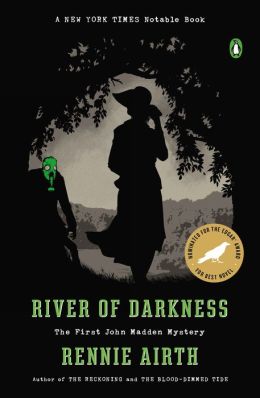 River of Darkness by Rennie Airth (Penguin Books, $16, 9780143035701).
River of Darkness by Rennie Airth (Penguin Books, $16, 9780143035701).
The protagonist of River of Darkness is Inspector John Madden, a Scotland Yard detective and traumatized World War I veteran. He has also lost his wife and young daughter to an influenza outbreak, and in this damaged condition he's assigned to track down and apprehend another veteran of the Great War, a former soldier who kills a family with a bayonet.
Under Fire: The Story of a Squad by Henri Barbusse, translated by Fitzwater Wray (Penguin Classics, $16, 9780143039044).
Based on his experience as a volunteer soldier in World War I, Barbusse tells the story of ordinary men who are themselves fighting in the French Sixth Battalion. In visceral detail, Barbusse describes the horrific, hellish conditions of trench warfare and their effect on the human psyche. The novel is considered a classic in the vein of Hemingway's A Farewell to Arms or Remarque's All Quiet on the Western Front.
The Regeneration Trilogy by Pat Barker (Viking, 9780670869299 out of print)
Consisting of Regeneration (Plume, $16, 9780142180594), The Eye in the Door (Plume, $16, 9780452272729) and The Ghost Road (Plume, out-of-print, 9780452276727), Pat Barker's critically acclaimed trilogy explores the psychological trauma of World War I. The novels seamlessly blend fact with fiction: historical figures such as Siegfried Sassoon, W.H.R. Rivers (who pioneered treatments for shell shock during World War I) and Wilfred Owen are major characters, interacting freely with Barker's purely fictional creations. The final book in the trilogy won the Booker Prize in 1995. Mark LaFramboise called the trilogy "just extraordinary. It's one of a kind as far as literary takes on World War I go."
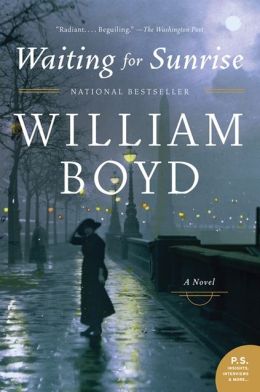 Waiting for Sunrise by William Boyd (Harper Perennial, $15.99, 9780061876776).
Waiting for Sunrise by William Boyd (Harper Perennial, $15.99, 9780061876776).
Boyd's 2012 literary thriller is about Lysander Rief, a young British actor who becomes embroiled in scandal and espionage in Vienna at the start of World War I. He is in Vienna to visit a psychoanalyst, a disciple of Sigmund Freud. Rief winds up in jail and is released by the British Foreign Service, but he'll have to work for them undercover in exchange for his freedom. Mark LaFramboise commented: "The book does frontline soldiering but also the clandestine, cloak and dagger spy stuff of World War I. And Boyd is just a terrific, terrific writer."
The Cartographer of No Man's Land by P.S. Duffy (Liveright, $25.95, 9780871403766).
Angus MacGrath, a ship's captain from Nova Scotia, enlists with the Allied Forces after his brother-in-law goes missing on the front lines. MacGrath assumes that he'll work in safety as a cartographer in London while helping to find his brother-in-law; instead he becomes an officer in the trenches, contending with mustard gas, machine guns, mud and despair.
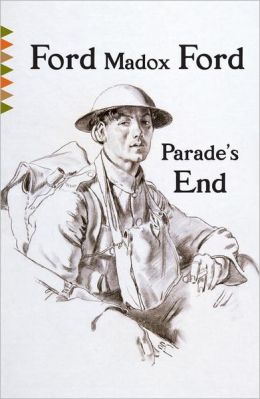 Parade's End by Ford Madox Ford (Vintage, $19, 9780307744203).
Parade's End by Ford Madox Ford (Vintage, $19, 9780307744203).
Ford's tetralogy (Parade's End comprises four separate novels) recounts the life of Christopher Tietjens, a statistician from a rich land-owning family, who serves in the British army in World War I. Ford is less concerned with graphic, visceral depictions of battlefields than mining the consciousness of his lead characters. "This is one of my all time favorite books," said Tom Gartner. "It's not just about the war per se but also what was going on in England--it so captures that era. And the style is so beautiful."
In Pale Battalions by Robert Goddard (Delta, $12, 9780385339209).
Goddard's 2007 novel focuses on three generations of women in a single family: Leonora, her daughter (also named Leonora) and Penelope. The story begins with the younger Leonora taking Penelope to a memorial to those killed on the Somme. There, they see Leonora's father's name, but it's made clear that he died a full year before Leonora was born. From there on, Penelope begins to unravel the mysterious lives of her mother and grandmother. "He takes some liberties," said Tom Gartner, "but he really delves into the politics of the time in an interesting way."
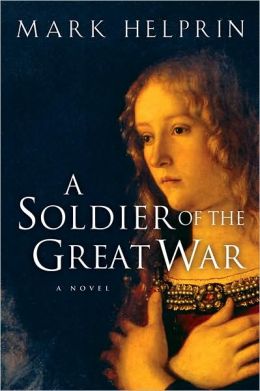 A Soldier of the Great War by Mark Helprin (Mariner Books, $16.95, 9780156031134).
A Soldier of the Great War by Mark Helprin (Mariner Books, $16.95, 9780156031134).
Through the life of Alessandro Giuliani, Helprin provides a sweeping overview of World War I and the decades immediately before and after. The novel opens 50 years after the war, in August 1964, when Alessandro is an old, distinguished professor. He meets a young factory worker and gradually recounts his history: as a wealthy, privileged young man at the turn of the 20th century, his experiences in the war, and his years spent wandering after he deserts the army.
Deafening by Frances Itani (Grove Press, $14, 9780802141651).
Grania O'Neill, the heroine of Itani's 2003 novel, catches scarlet fever as a child and loses her hearing. In adulthood, she falls in love with a hearing man who has a beautiful singing voice. After war breaks out, he is sent to fight in Europe while she must wait for him in Canada. "We were crazy about this book when it came out," said Margaret Brennan Neville. "She's isolated by silence, he's isolated by sound. The scenes about the war are horrific and powerful all at the same time."
The Sojourn by Andrew Krivak (Bellevue Literary Press, $14.95, 9781934137345).
Based on Krivak's own family history, this novel tells the story of Jozef Vinich, who emigrates with his family to a rural mining town in Colorado in the late 19th century. After Jozef's mother dies in a railway accident, Jozef's father decides to take the rest of his family back to Austria-Hungary. In 1914, Jozef is conscripted into service on the southern front. "It's a small, almost quiet novel," said Margaret Brennan Neville. "It's not told from our side. But on the ground, you can't really tell the difference. It's very powerful."
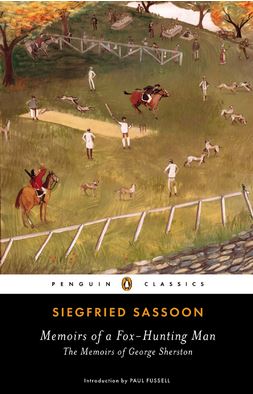 Memoirs of a Fox-Hunting Man; Memoirs of an Infantry Officer; Sherston's Progress by Siegfried Sassoon (Penguin Classics).
Memoirs of a Fox-Hunting Man; Memoirs of an Infantry Officer; Sherston's Progress by Siegfried Sassoon (Penguin Classics).
Though technically fiction, Sassoon's trilogy is based heavily on his own experience in World War I. Memoirs of a Fox-Hunting Man ($16, 9780143107156) hardly features the war at all; instead it recounts George Sherston's (Sassoon's fictional alter-ego) life as a young waster in England before the war. Only towards the end of the novel is he actually sent to the frontlines. Memoirs of an Infantry Officer ($15, 9780143107163) deals principally with Sherston's time in the trenches in mainland Europe, while Sherston's Progress ($15, 9780143107170) is about the time he spends being rehabilitated from shell shock. Tom Gartner called the trilogy "a brilliant capturing of the time."
August 1914 by Aleksandr Solzhenitsyn (new edition from Farrar, Straus & Giroux coming August 19, $22, 9780374534691).
The first part of Solzhenitsyn's Red Wheel series, August 1914 focuses on the outbreak of World War I and the defeat of the Imperial Russian army at the Battle of Tannenberg in East Prussia. That decisive, crushing loss helped precipitate the 1917 Revolution and the fall of the Tsars. The lengthy novel blends fictional characters and plotlines with historical fact. An expanded edition, released when Solzhenitsyn was living in the U.S., includes chapters on Vladimir Lenin and Tsarist Prime Minister Pyotr Stolypin.
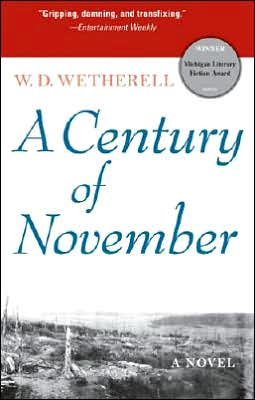 A Century of November by W.D. Wetherell (University of Michigan Press, $15, 9780472031221).
A Century of November by W.D. Wetherell (University of Michigan Press, $15, 9780472031221).
Shelf Awareness reviews editor Marilyn Dahl considers A Century of November to be "one of the finest World War I novels ever written." It is the story of Charles Marden, a widower, farmer and magistrate on Vancouver Island, who journeys from Canada to Belgium after hearing of his son Billy's death on the front lines. Although he is initially denied access to the battlefield by British authorities, the sudden end of the war allows him to visit the exact spot where his son died. In her review, Dahl wrote: "Yet in the midst of pain and loss, this is a story of hope and redemption in a desolate world. 'Luminous' is an overused word in reviews, but A Century of November more than deserves the word."






SHELFAWARENESS.0213.S4.DIFFICULTTOPICSWEBINAR.gif)




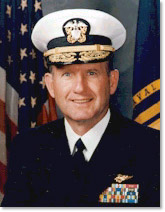 Barnes & Noble has elected retired U.S. Navy Vice Admiral John R. Ryan to the board. Ryan served in the Navy from 1967 to 2002 and is president and member of the board of governors of the Center for Creative Leadership.
Barnes & Noble has elected retired U.S. Navy Vice Admiral John R. Ryan to the board. Ryan served in the Navy from 1967 to 2002 and is president and member of the board of governors of the Center for Creative Leadership.
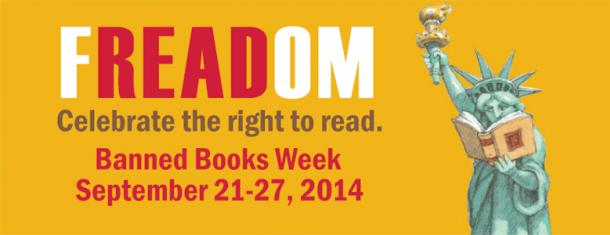 More than 1,500 videos have been submitted since the read-out began in 2011, including many by bestselling authors. (Sherman Alexie, Laurie Halse Anderson and Kahled Housseni are contributing new videos.) Bookstores and libraries across the country are already participating in the Virtual Read-Out.
More than 1,500 videos have been submitted since the read-out began in 2011, including many by bestselling authors. (Sherman Alexie, Laurie Halse Anderson and Kahled Housseni are contributing new videos.) Bookstores and libraries across the country are already participating in the Virtual Read-Out. SHELFAWARENESS.0213.T3.DIFFICULTTOPICSWEBINAR.gif)
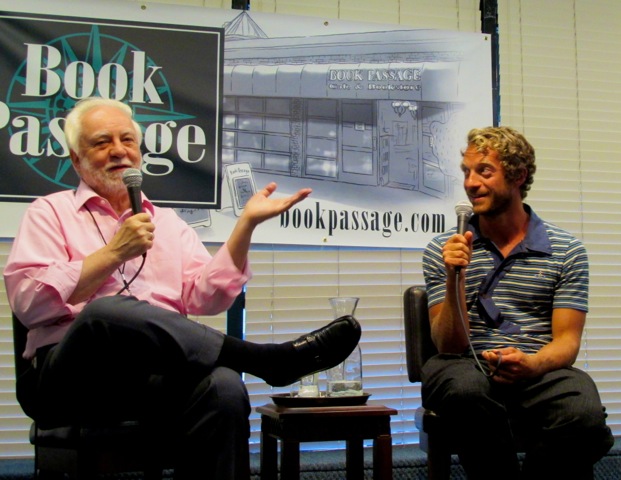 The 21st annual
The 21st annual  As
As  Vicky Titcomb, manager of
Vicky Titcomb, manager of 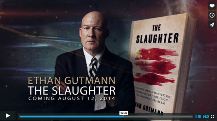 The Slaughter: Mass Killings, Organ Harvesting, and China's Secret Solution to Its Dissident Problem
The Slaughter: Mass Killings, Organ Harvesting, and China's Secret Solution to Its Dissident Problem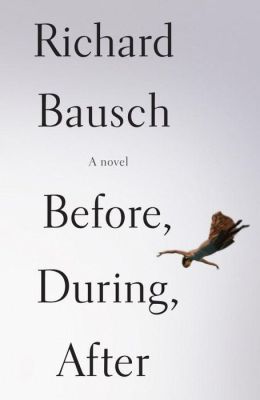 Richard Bausch's novels and story collections have earned him impressive critical recognition, including a PEN/Malamud Award and a National Endowment for the Arts grant, settling him firmly among our finest contemporary writers. The Guardian praised him for having "a devastating concern for detail and domestic complexity, the ability to lay bare the convolutions, eccentricities, dangers and beauties of 'ordinary' people." Bausch (Peace; Thanksgiving Night) displays no less in his 12th novel, Before, During, After.
Richard Bausch's novels and story collections have earned him impressive critical recognition, including a PEN/Malamud Award and a National Endowment for the Arts grant, settling him firmly among our finest contemporary writers. The Guardian praised him for having "a devastating concern for detail and domestic complexity, the ability to lay bare the convolutions, eccentricities, dangers and beauties of 'ordinary' people." Bausch (Peace; Thanksgiving Night) displays no less in his 12th novel, Before, During, After.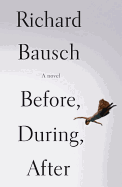
 River of Darkness by Rennie Airth (Penguin Books, $16, 9780143035701).
River of Darkness by Rennie Airth (Penguin Books, $16, 9780143035701).  Waiting for Sunrise by William Boyd (Harper Perennial, $15.99, 9780061876776).
Waiting for Sunrise by William Boyd (Harper Perennial, $15.99, 9780061876776).  Parade's End by Ford Madox Ford (Vintage, $19, 9780307744203).
Parade's End by Ford Madox Ford (Vintage, $19, 9780307744203).  A Soldier of the Great War by Mark Helprin (Mariner Books, $16.95, 9780156031134).
A Soldier of the Great War by Mark Helprin (Mariner Books, $16.95, 9780156031134). Memoirs of a Fox-Hunting Man; Memoirs of an Infantry Officer; Sherston's Progress by Siegfried Sassoon (Penguin Classics).
Memoirs of a Fox-Hunting Man; Memoirs of an Infantry Officer; Sherston's Progress by Siegfried Sassoon (Penguin Classics).  A Century of November by W.D. Wetherell (University of Michigan Press, $15, 9780472031221).
A Century of November by W.D. Wetherell (University of Michigan Press, $15, 9780472031221).